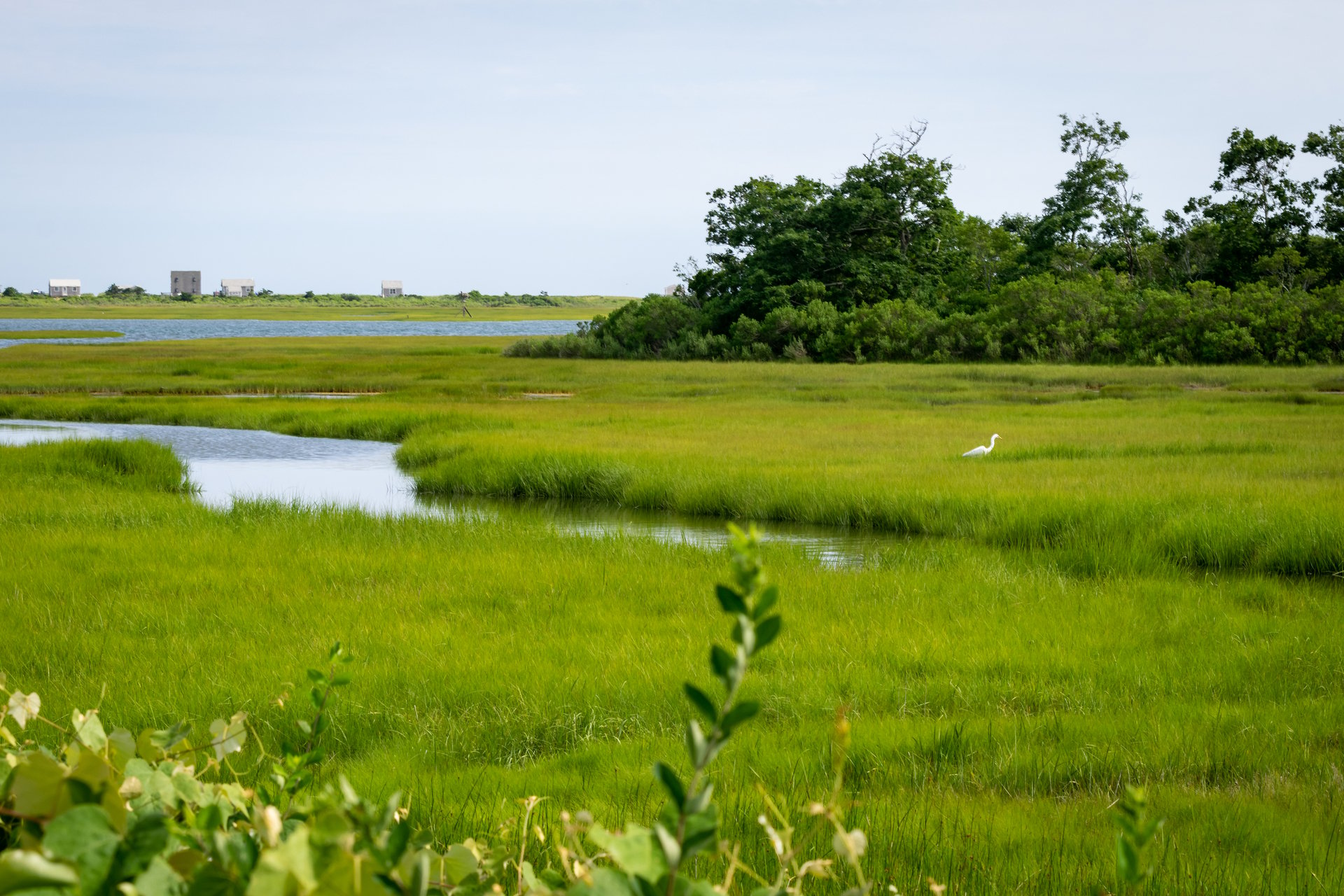Allens Pond Wildlife Sanctuary
Conservation Projects at Allens Pond
Allens Pond Wildlife Sanctuary is actively involved with a variety of research projects that relate to wildlife monitoring, research, restoration, and conservation.
Salt Marsh Restoration
Mass Audubon fights the impacts of climate change by enhancing and protecting one of our most valuable natural resources: salt marshes. Allens Pond Wildlife Sanctuary and several project partners were selected to receive funding from the Environmental Protection Agency’s (EPA) Southeast New England Program (SNEP) and President Biden’s Bipartisan Infrastructure Law. SNEP works in partnership with stakeholders including Mass Audubon to promote resilient ecosystems of clean water, healthy diverse habitats, and sustainable communities in Southeast New England. Our accomplishments include
- Restoring tidal hydrology by removing tidal restrictions, debris and invasive plant barriers, as well as facilitating native revegetation along the upland saltmarsh boundary.
- 40 acres of marsh surface has been restored, and we will expand restoration efforts to an additional 90 acres.
- Removing invasive species and planting native species at the Darthmouth Natural Resources Trust’s Ocean View Farm Reserve (neighboring Allens Pond Wildlife Sanctuary) in effort to help facilitate wildlife and habitat movement landward as a response to sea level rise and act as a wetland buffer (an area with plants that helps protect the wetland and all its climate services).
- Implementing salt marsh climate adaptation techniques that will help alleviate ponding stress and promote vegetation growth on the marsh at Allens Pond in partnership with Save the Bay and Bristol County Mosquito Control.
Learn more about this project by exploring our StoryMap
Coastal Waterbird Monitoring
The South East-based Coastal Waterbird Team monitored the efforts of 73 pairs of Piping Plovers at 17 beaches on the South Coast and South Shore. Get more details out coastal waterbird monitoring
South Coast Osprey Project
Westport, Massachusetts, is home to one of the more significant breeding populations of Osprey in North America. Since 2004, Allens Pond Wildlife Sanctuary, with the essential support of volunteers and partner organizations, annually monitors the breeding activity of 80 pairs of Osprey on nearly 100 nesting platforms in Westport and Dartmouth, MA.
These platforms were installed beginning around 1965 by two local residents, Gil and Jo Fernandez, and willing property owners and Osprey friends.
Find out more about the project and how you can get involved
Monarch Watch Tagging
Between August and October the South East region holds Monarch butterfly tagging events as part of the national Monarch Watch program. These events for the public and for school groups take place at Allens Pond, Daniel Webster, North River, and Attleboro Springs wildlife sanctuaries.
The Monarchs tagged are on their fall migration to Mexico, where other scientists will report the tags they recover during the overwintering period.
Monitoring Saltmarsh Sparrows
Mass Audubon scientists have begun to monitor Saltmarsh Sparrows, banding 345 individuals and monitoring 170 nesting attempts at Allens Pond. There are four species of birds that are dependent on tidal marsh habitat to breed in New England: Saltmarsh Sparrow, Seaside Sparrow, Willet and Clapper Rail. Finding these species at a single location is exceptionally rare in Massachusetts and suggests that Allens Pond has become a globally important habitat for salt marsh-dependent birds.



